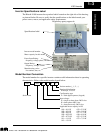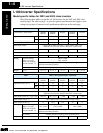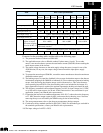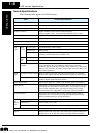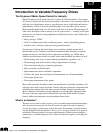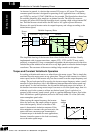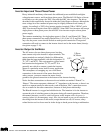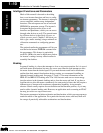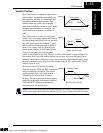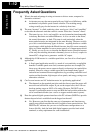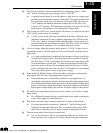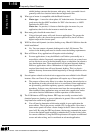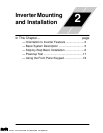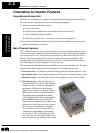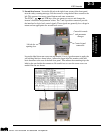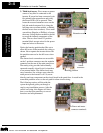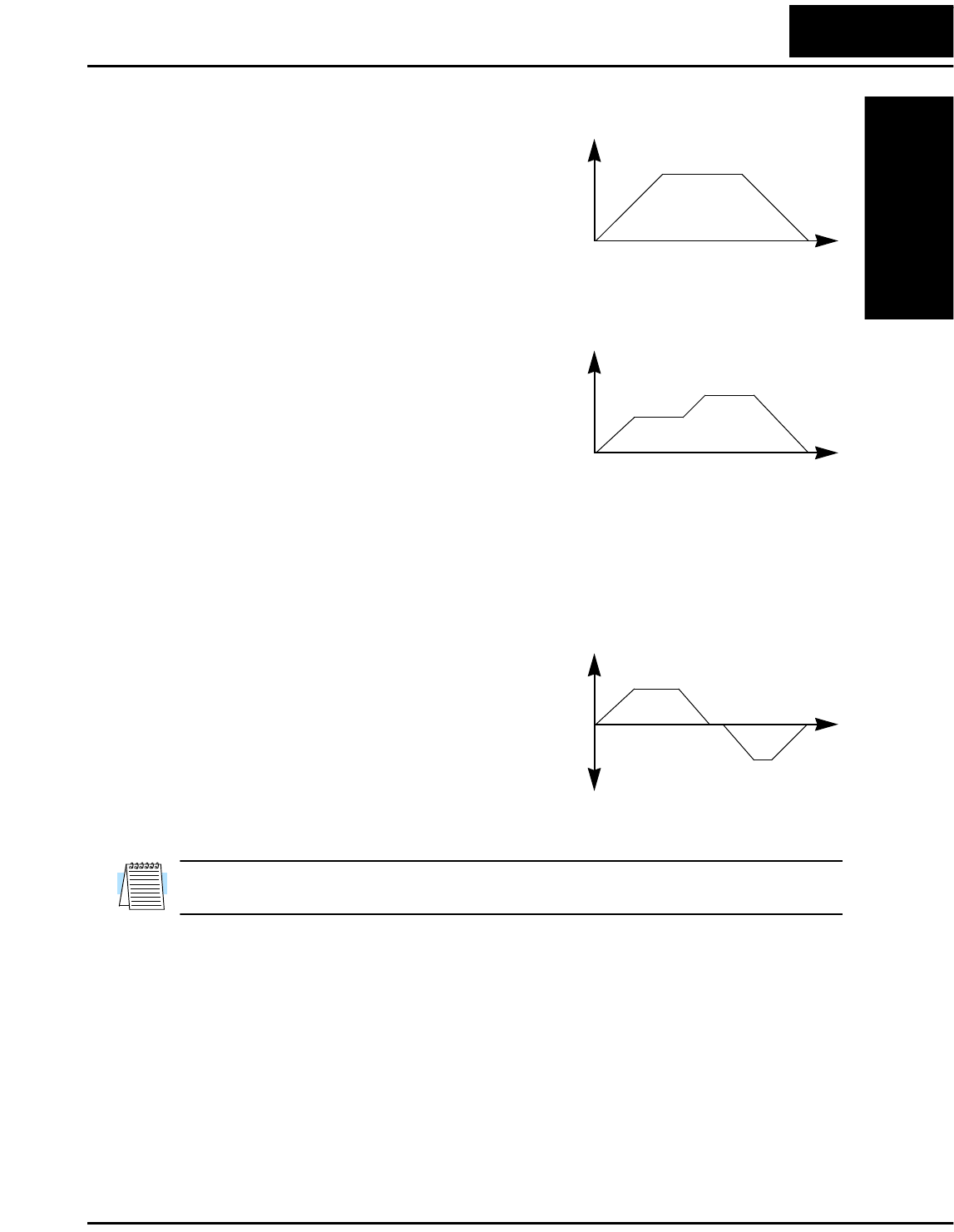
L100 Inverter
Getting Started
1–11
Velocity Profiles
The L100 inverter is capable of sophisticated
speed control. A graphical representation of
that capability will help you understand and
program the associated parameters. This
manual makes use of the velocity profile
graph used in industry (shown at right). In the
example, the acceleration is a ramp to a set
speed, and the deceleration is a decline to a
stop.
The L100 inverter can store up to 16 preset
speeds. And, it can apply separate acceleration
and deceleration transitions from any preset to
any other preset speed. For example, a motor
with a small load could use high accel/decel
values, but a heavy load will generally use
slower speed changes. A multi-speed profile
(shown at right) uses two or more preset
speeds in one motion of the load. There is no limit to the number of speed changes for
one motion; that is up to the control input to the inverter. Also note that speed can be
infinitely variable across the speed range. You can use the potentiometer control on the
keypad for manual control. The drive also accepts analog 0-10V signals and 4-20 mA
control signals as well.
The inverter can drive the motor in either
direction. Separate FWD and REV commands
select the direction of rotation. The motion
profile example shows a forward motion
followed by a reverse motion of shorter
duration. The speed presets and analog signals
control the magnitude of the speed, while the
FWD and REV commands determine the
direction before the motion starts.
NOTE: The L100 can move loads in both directions. However, it is not designed for use
in servo-type applications that use a bipolar velocity signal which determines direction.
Speed
Time
DecelAccel
Velocity Profile
Fixed speed
Speed
Time
Multi-speed Profile
Speed 1
Speed 2
Speed
Time
Bi-directional Profile
Forward move
Reverse move
Technologies Inc.
Toll Free: voice: 1-877-539-2542 fax: 1-800-539-2542 www.mgitech.com



